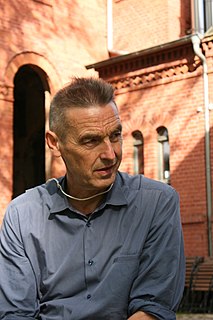A Quote by Ulrich Beck
That was the first major social sciences conference at which social scientists from all cultures wanted to reach a consensus on whether we can continue to pursue a national course in the social sciences or whether we need a cosmopolitan path that also connects us in a new way.
Related Quotes
The social sciences offer equal promise for improving human welfare; our lives can be greatly improved through a deeper understanding of individual and collective behavior. But to realize this promise, the social sciences, like the natural sciences, need to match their institutional structures to today's intellectual challenges.
A … difference between most system-building in the social sciences and systems of thought and classification of the natural sciences is to be seen in their evolution. In the natural sciences both theories and descriptive systems grow by adaptation to the increasing knowledge and experience of the scientists. In the social sciences, systems often issue fully formed from the mind of one man. Then they may be much discussed if they attract attention, but progressive adaptive modification as a result of the concerted efforts of great numbers of men is rare.
I think it is now time for social scientists to step out of the shadow and to establish an advanced social sciences methodology that integrates science (third-person view) social transformation (second-person view) and the evolution of self (first-person view) into a coherent framework of consciousness-based action research
There is a noticeable general difference between the sciences and mathematics on the one hand, and the humanities and social sciences on the other. It's a first approximation, but one that is real. In the former, the factors of integrity tend to dominate more over the factors of ideology. It's not that scientists are more honest people. It's just that nature is a harsh taskmaster. You can lie or distort the story of the French Revolution as long as you like, and nothing will happen. Propose a false theory in chemistry, and it'll be refuted tomorrow.
The prime lesson the social sciences can learn from the natural sciences is just this: that it is necessary to press on to find the positive conditions under which desired events take place, and that these can be just as scientifically investigated as can instances of negative correlation. This problem is beyond relativity.
Scientists, therefore, are responsible for their research, not only intellectually but also morally. This responsibility has become an important issue in many of today's sciences, but especially so in physics, in which the results of quantum mechanics and relativity theory have opened up two very different paths for physicists to pursue. They may lead us - to put it in extreme terms - to the Buddha or to the Bomb, and it is up to each of us to decide which path to take.
Our normal expectations about reality are created by a social consensus. We are taught how to see and understand the world. The trick of socialization is to convince us that the descriptions we agree upon define the limits of the real world. What we call reality is only one way of seeing the world, a way that is supported by social consensus.



































